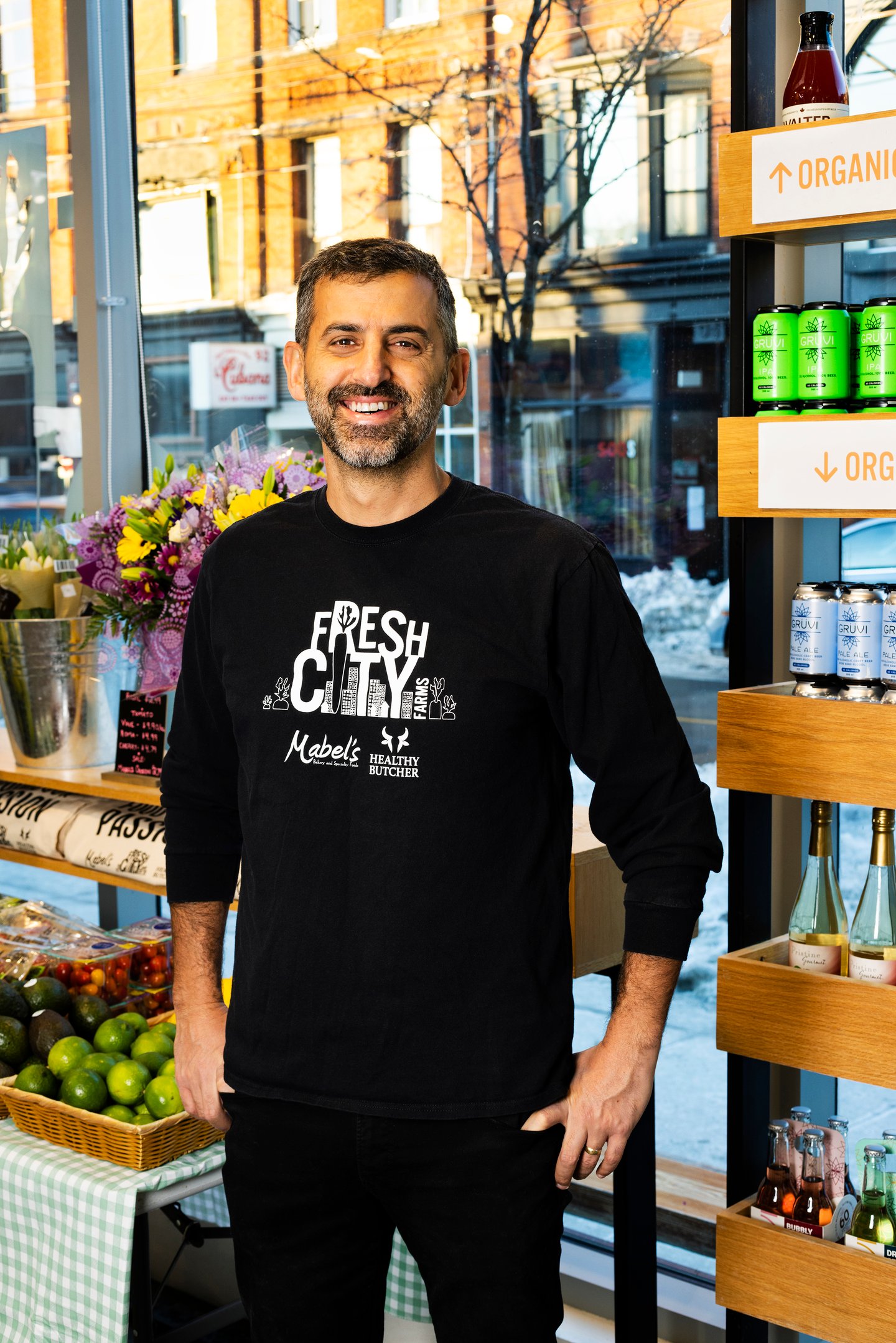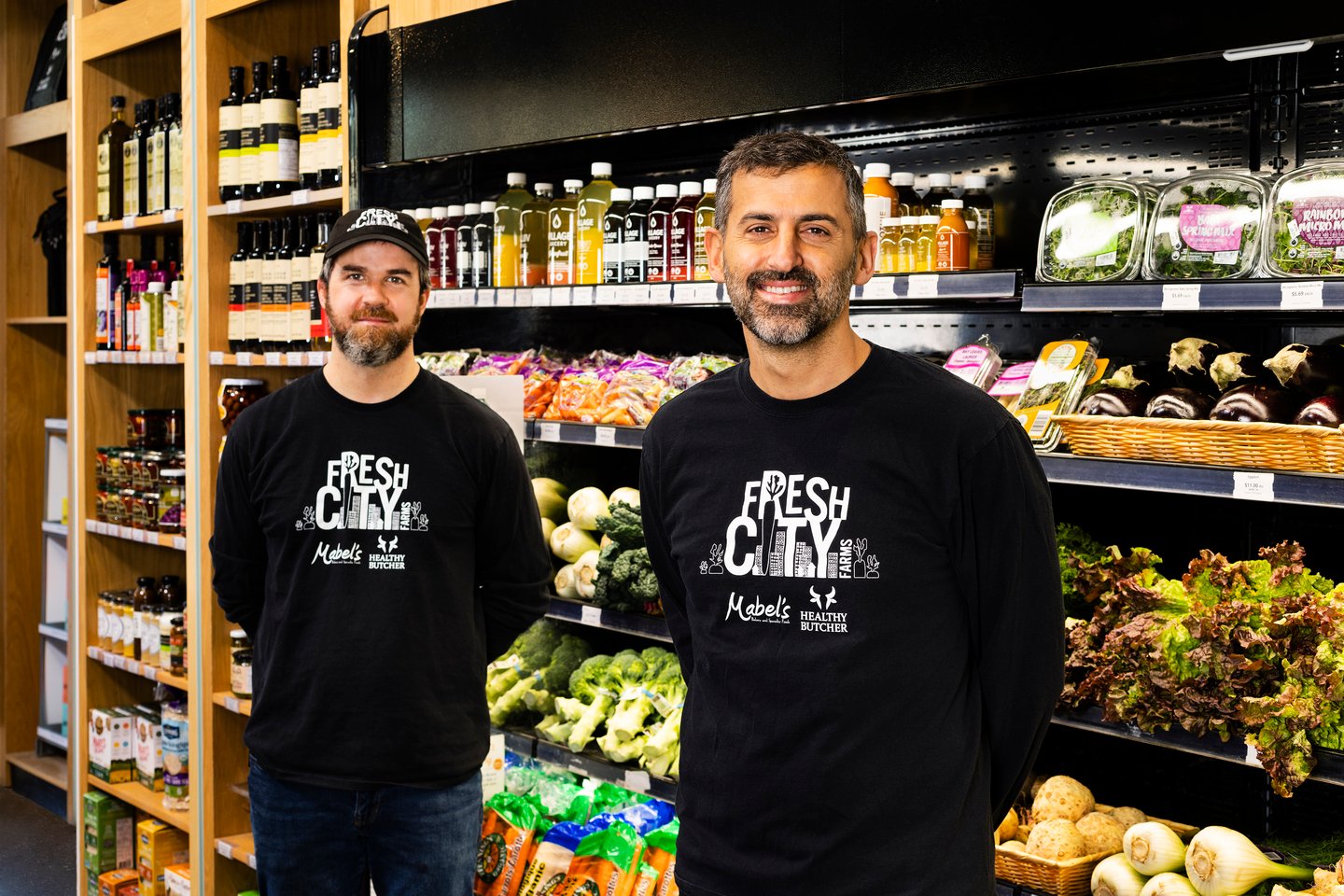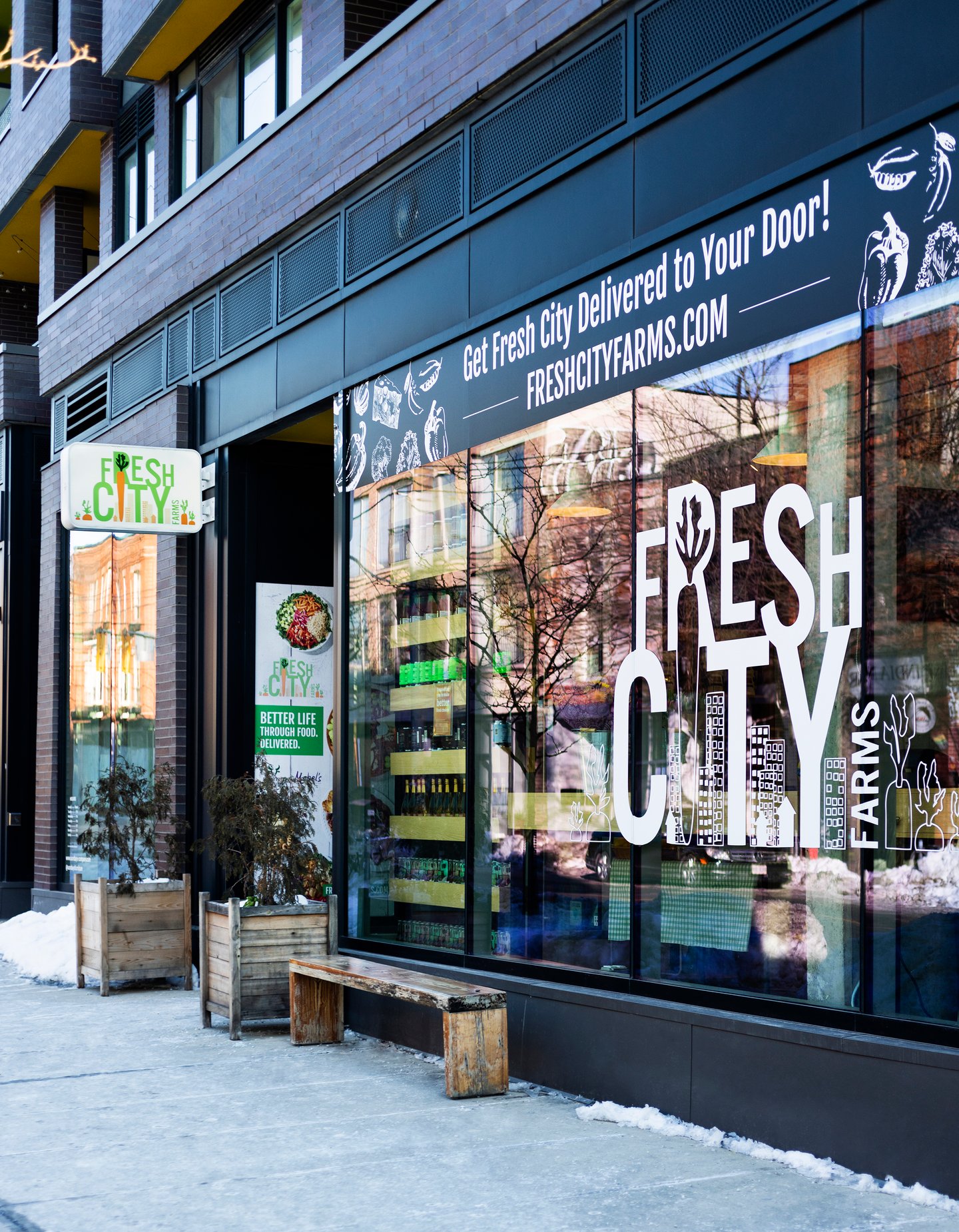How Fresh City Farms is sticking to its roots
Before Ran Goel started Fresh City Farms in Toronto 11 years ago, he was practising law in New York City, working with hedge fund investments in the aftermath of a major financial crisis. “I realized how fragile the systems we rely on can be, including our food supply,” he says.
With an over-reliance on processed foods and imports, Goel decided he wanted to be part of creating a more sustainable solution, starting in his hometown of Toronto. “I became infatuated with this idea of urban farming and leveraging that to get people really thinking about where their food comes from—and enjoying their food more in the process.”
True to his word, Goel moved back to Toronto and started Fresh City as an urban farm at Downsview Park, growing organic produce and delivering it to city dwellers via an online subscription service. “Eventually, we were no longer able to grow everything we sold so we partnered with local farmers to sell local, organic produce and eventually basic groceries too,” says the CEO and founder.
Today, not only does Fresh City employ 300 people and feed 40,000 people a month across southern Ontario through its online delivery service, it supports more than 20 farmers in growing their own vegetables, herbs and flowers to sell.
Over the last few years, the company also opened two brick-and-mortar Fresh City stores, and another six under The Healthy Butcher and Mabel’s Bakery & Specialty Foods banners.
Goel says the company made the strategic decision to open physical retail stores and produce more of its own products to sell in-store and online to put a greater focus on vertical integration. “We know we’ll never be able to compete with Costco or Walmart in selling canned tomato sauce, organic or not, so we really wanted to create products that were unique and reflected our sourcing values,” he says. In going down this path, the opportunity to acquire Mabel’s and The Healthy Butcher—which focus heavily on locally made/organically sourced products—seemed like the logical step. These days, about 35% to 40% of Fresh City sales come from products made in-house, ranging from soups, salads, and sandwiches to smoothies, baguettes, entrees and appetizers.
“There are also the dozens and dozens of relationships we have with local farmers and local makers of various kinds,” say Goel, noting that Fresh City has been carrying products from retailers like the Village Juicery since the cold-pressed juice company first launched.
During the pandemic, Fresh City also made the decision to leverage the liquor licence in place at its downtown store to start a liquor delivery service. “Of course, it aligns to our sourcing values with a focus on B.C. and Ontario organic and natural lines,” says Goel.
Sustainable farming long-term
In promoting a more sustainable, long-term approach to fresh food production, the company recently secured a 20-year lease to an 11-acre plot of land at Downsview Park. Fresh City Farms will use 1.5 acres and the rest will be subdivided into smaller plots for other “complementary” organizations and individuals interested in farming. For example, the YMCA will be farming one plot as part of a summer camp for youth, while another farming collective will be geared to single, racialized mothers. Goel says proposals from other prospective farming innovators are always welcome.
The location offers water access, a harvest processing area, dry and cold storage, greenhouse space and washrooms. “We’ve always divided our farm [land] with other farmers which has created a sense of community,” says Goel, noting that many have gone on to do other “cool things” like starting their own rural farms, or developing rooftop and warehouse farms. “A big part of what we’re trying to do is incubate a new generation of not just farmers but food entrepreneurs,” he says.
Once pandemic restrictions are lifted, the plan is to also use the property as a space for weddings, corporate retreats and culinary events.
Yet even with all of Fresh City’s success to date, Goel admits that the grocery industry isn’t easy for specialty businesses like his, especially with a global pandemic added to the mix. He recalls there were more than a dozen organic box delivery services in the area when Fresh City started out; now there are just two. “I don’t like to sugar-coat it because it’s tough; it’s really a day-by-day, quarter-by-quarter kind of decision making,” he says. “We’re always pushing the envelope on social and environmental causes, so it’s never this point of feeling truly comfortable.”
Tackling bigger competitors and the pandemic
What Goel sees as Fresh City’s advantage in the market is a growing expertise in being able to educate customers and offer engaging storytelling around why its products are unique and warrant a higher price point. For example, pre-COVID, the grocer organized an event where customers could tour the farm and meet famers and key vendors. Similarly, communications sent out to customers often include photos and videos about Fresh City initiatives rather than being just product focused.
“The big grocers and the legacy infrastructure they have to defend just can’t do what we do,” he says, whether that be supporting small farms or focusing on circular-packaging initiatives that engage customers. “We were also among the first in Canada to offer fair-trade organic bananas.”
COVID-19 has also prompted the grocer to put a greater focus on cost efficiencies both online and in-store. With an e-commerce platform created in-house, Fresh City was able to be nimble in making adjustments to stock and delivery times as needed. “In some areas of the Greater Toronto Area we only deliver once a week, creating a denser delivery route, which is better economically and better for the environment,” says Goel.
Being able to offer already curated food baskets based on what’s available also proved cost-effective. “These baskets were much easier to pick and pack so we could serve more people during that dire first part of the pandemic,” says Goel.
Even though things are starting to settle down on the labour front, an ongoing concern in the retail sector, Goel says pandemic-related staffing concerns have reinforced the fact he wants his business to be an employer of choice. “For us, our retail brick-and-mortar company is fairly young, but I think we have some work to do—like many of our competitors—in improving the work experience for frontline workers,” he says. “But I think we’re up for the challenge.”
Another key learning to come from the COVID crisis is the merit in simplifying operations. “We’ve seen simplified menus and less SKUs at grocery stores during the pandemic and I think that’s here to stay,” says Goel. “If the market is signalling that labour is going to be more expensive, the things that cheap labour made possible may no longer be possible and that’s fine.”
Going forward, Goel says the company will continue improving and expanding its e-commerce platform and look to double (or even triple) its store count and online customer base within the next five years. Its primary goal, however, is the same as it was when Fresh City first began: to be at the forefront of pushing customers to shop more locally, organically and sustainably.
This article appeared in Canadian Grocer's February 2022 issue.



